STOP PRESS! STOP PRESS! STOP PRESS! STOP PRESS!
Bishop gives voice to growing unease over future of public woods and forests.
Latest Government plans raise more questions, rather than allaying fears.
Our Forests was on the brink of sending out the Press Release below when two events occurred to add to & qualify its content & commentary:
- 1. Bishop James, the chair of the Independent Panel on Forestry, provided the following statement to Our Forests’ member and chair of HOOF, Rich Daniels:
“As Bishop James said when he met with you he would not be content with any proposals about the future of forestry which contradicted the recommendations of the Independent Panel. In particular the Bishop would be unhappy if the Government abandoned the proposal to establish a Parliamentary Charter, if it marginalised the proposed Guardians to the point that they become ineffectual, if it failed to establish a distance between the Government and the management and development of the Public Forest Estate.These were all key elements of the Panel’s report and recommendations.
The Government would be unwise to provoke a public reaction by failing to follow through on the Panel’s recommendations.”
This statement was in response to the increasing concerns being voiced amongst grassroots communities that the Government is rowing back on some of the promises it made in response to the Panel’s recommendations. As such, the Bishop’s statement underpins the rationale for & tone of Our Forest’s press release.
- 2. The Forestry Commission/Defra released (ad hoc) their latest outline for the management structures and governance of the Public Forest Estate management body. Although dated 29/7/13, Our Forests only received its copy indirectly on 31/7/13 and other interested NGOs and groups on 1/8/13.
The structures and governance outlined in this latest draft appear to address some, but not ALL of Our Forests concerns or those voiced by other grassroots groups and activists who have been campaigning for a secure and sustainable future for our public woods and forests from the outset. The document is attached.
Rich Daniels, Our Forests member and chair of HOOF said,
“In the face of mass public protests against the proposed disposal of the whole public forest estate, the Government made its first major U-turn and promised to secure not sell off our public woods and forests. That change of heart was very welcome, as were the recommendations of the Independent Panel chaired by the highly-respected, Bishop of Liverpool. But now campaigners fear that much of that long, hard effort to get the Government to understand the wide range of benefits properly-managed public forests deliver may be undermined.
The latest arrangements appear to minimise the direct and real influence of the public and forest communities in the management of the public forest estate. And the emphasis for the new body seems to be primarily on developing commercial enterprises that can exploit and extract cash from our forests and woods, rather than maximising their less readily monetized and marketable, but nonetheless hugely valuable, public and environmental ‘goods and services. The very things and distinctive, unique character of the public forest estate that people came out in defence of en masse.’”
Our Forests specific comments follow and in the attached press release:
- Point 1, reiterates the Government’s promise “that England’s Public Forest Estate will remain secured in public ownership”. Good to see that upfront, but the details of how that public ownership will be secured remain vague.
- Point 3, “Nothing in this document is fixed”. Good, because there still appear to be omissions from and dilutions some of the Panel’s key recommendations as set out below and in the Our Forests press release.
- Point 6, “revenue generation and self-sufficiency” are prioritised above the new body’s duty to balance those “with generating positive impacts for people and nature.”
- Point 8, The Guardians – as per the concerns Our Forests rises in our press release, as proposed in the document the Guardians appear to have a weaker, woollier role than envisaged by the Panel. They are described as “the conscience of the Public Forest Estate”, not the managers and sitting outside the Board of Executive and Non-Executive directors (who will be appointed by the Secretary of State).
- Point 9, there is a veiled threat that time is pressing for securing the parliamentary time for the new primary legislation necessary to establish the new structures. This threat has been made obliquely several times to various campaigners and grassroots groups concerned about the future of the PFE – along the lines of, ‘don’t hold things up or you may lose everything.’ The Government shouldn’t need reminding that it was its own actions in proposing to dispose of the whole 100% of the 1,500 public woods and forests that make-up the PFE that got it into this situation in the first place and it is its job, responding to the protests by 100s of 1000s of people across the political and social spectrums, to enable a positive solution. It is the Government and its officials that to date have taken nearly 2 and a half years to reach this point!
- Point 15, the document refers to the organisation’s objectives and duties being “reflected in a public-facing “charter”, setting the body’s remit for a long period, for example 10 years.” That is not as definite or legally-binding as the Parliamentary Charter the Panel proposed – hence our concerns raised in the press release as to the absence of a real Charter hold.
- Point 17, Ownership “The organisation would take over ownership of the estate ownership would be vested in the new body rather than its Board.” As the Panel recommended, the PFE should ‘be held in trust for the Nation’ set down in a legally-binding Charter. The Guardians should be an integral part of the new management body (not a separate repository for the ‘touchy-feely’ stuff) and be the part which represents and guards ‘public ownership’.
Our Forests challenges Independent Panel on Forestry:
For immediate release: 3rd August 2013
‘Are you content to allow the Government to ignore and dilute your key recommendations for the future of the Public Forest Estate? Namely:
– No Charter
– ‘Guardians’ reduced to a side-show
– Reducing public funding and increasing economic returns prioritised above all other benefits.
Until February 17th, 2011 the Government was determined to ‘dispose’ of the entire 258,000 hectares and all 1,500 of the woods and forests that make up the Public Forest Estate (PFE) in England. It was only prevented from doing so by the over 530,000 people who signed 38 Degrees’ on-line petition [1] against the disposal along with local communities and grassroots organisations, which rose up in defence of their patch of woodland across the country – forcing the Government’s first major U-turn.
On 17th March, 2011, the Independent Panel on Forestry was set-up by then Secretary of State, Caroline Spelman, with the Bishop of Liverpool, James Jones as its chair, to advise government on the future direction of forestry and woodland policy in England, the role of the Forestry Commission in implementing it and the future governance of the Public Forest Estate. Nearly two and a half years since that U-turn, the future of the Public Forest Estate is still not secured and the outline governance and structures proposed by officials fall short of, or appear to ignore, key recommendations put forward by the Panel.
Our Forests founder member, Jonathon Porritt said,
“Our Forests – along with other grassroots groups – is increasingly concerned that the Government is making another, less welcome, U-turn on its claimed, new found love for all things forestry. Outline proposals, such as they exist, for the Public Forest Estate and its management body ignore or dilute key recommendations made by the Independent Panel, diminish the promised role of ‘Big Society’ in the future management of our public woods and forests, and prioritise reducing costs rather than sustaining or increasing the proven public benefits provided by our public woods and forests.
“Hundreds of thousands of people in communities across the country placed great faith in the Panel’s role and its recommendations for securing the long-term future of their woods and forests. Therefore, Our Forests is challenging the Panel to come out openly and say whether or not it is content with the Government’s interpretation and proposed implementation of its recommendations?”
On 12th July 2012, the Panel published its final report setting out 31 recommendations, notable amongst which were the following:
– The Government should, ‘…pioneer a new approach to valuing and rewarding the management, improvement and expansion of the woodland ecosystems for all the benefits they provide to people, nature and the green economy.’
– The PFE, ‘…should remain in public ownership and be defined in statute as land held in trust for the nation.’
– ‘A Charter should be created for the English public forest estate, to be renewed every ten years’, which specified the public benefit mission and statutory duties of the PFE and its evolved management body.
– Those duties, ‘should be delivered through a group of Guardians, or Trustees, accountable to Parliament,’ who should oversee the new public forest management organisation ‘evolved’ from the current management by Forest Enterprise (part of the Forestry Commission).
In the Government’s response of 31st January 2013, the new Secretary of State, Owen Paterson promised that, ‘England’s Public Forest Estate will remain secured in public ownership…’
And that, ‘A new body will be created to hold the Estate in trust for the nation. The new body will have greater independence from Government and greater freedom to manage its resources and maximises its income but with the right safeguards in place to operate for the long-term benefit of people, nature and the economy.’
Over the intervening 6 months since those fine-sounding words, the new arrangements and governance structures being proposed by officials seem more designed to suit ‘Big Government’s’ vision and political philosophy, rather than to meet the aspirations and concerns of ‘Big Society’.
Certainly, they deviate significantly from several of the Panel’s key recommendations – emphasis has changed significantly and some principle points have been dropped altogether:
- PFE = the Public’s first priority, the Government’s last
The Public Forest Estate (PFE) was the number one priority for the hundreds of thousands of people protesting against the Government’s wholesale disposal proposal.
Yet in the Forestry and Woodlands Policy Statement Implementation Plan drawn-up and published by Defra in July 2013, reviewing the ‘commitments’ the Government set out in its initial response to the Panel’s recommendations, the PFE comes in last at number 36:
‘36. We will establish a new, operationally independent Public Forest Estate management body to hold the estate in trust for the nation and manage its resources effectively to maximise the value of the land, trees and other assets under its care.’ [2]
- No Charter, No Trust!
The Panel’s strongest, clearest recommendation was for the PFE to be, ‘defined in statute as land held in trust for the Nation’ with a Charter ‘renewed every 10 years.’ ‘The Charter should specify the public benefit mission and statutory duties.’ That capital ‘C’ Parliamentary Charter has been downgraded to, ‘a public-facing charter that summarises how the body will deliver it statutory remit’ – which sounds like the sort of high-minded, non-binding aspirational mission statement that many a corporation and organisation drafts, but rarely adheres to in practice.
- Real power with Board of Directors, not Guardians
The Panel recommended that the Charter, its mission and duties, “…should be delivered through a group of Guardians, or Trustees, who will be accountable to Parliament. The Guardians will oversee the new public forest management organisation evolved from Forest Enterprise England.”
But the Public Forest Estate Management Organisation (PFEMO) proposed by Defra is a very different beast to that recommended by the Panel. The available governance ‘organogram’ produced by officials confines the Guardians to a box outside the direct management of the PFE and separate to an additional Board of Directors made-up of Executives and Non-Executives, which will be, “given autonomy and responsibility to make all the decisions relating to running the PFE”. [3]
The text alongside the organogram states that, “The Board are responsible to Defra for delivering against the terms of their long-term funding agreement.” The implication being that it is the Secretary of State (Defra), who will make the appointments.
As well as the PFE being enshrined in law as owned by the Nation and the role and remit of its new management body (PFEMO) being set down in a Charter, the Panel stated specifically that direct oversight of both PFE and PFEMO should, “be delivered through a group of Guardians, or Trustees, who will be accountable to Parliament. The Guardians will oversee the new public forest management organisation evolved from Forest Enterprise England”. The Government’s formal response to the Panel’s recommendations of 31st January, 2013 talked only of, “exploring the scope for establishing a separate group of expert Guardians, including representatives from community groups”, and downgraded the role of the Guardians to an “advisory” and “supportive” one.
Under such an arrangement the Guardians are reduced to a side-show. This looks to be a deliberate ploy by Government – paying lip-service to the Panel’s recommendation to include ‘Big Society’ in the direct oversight of the PFE whilst diminishing the public’s direct influence. Representatives of grassroots groups may be flattered into thinking their views count, whereas the real power lies with the Board of Directors appointed by and answerable to the Secretary of State.
- Public Ownership – Government just can’t let go!
The Panel was plain in its recommendation that, “the public forest estate should
remain in public ownership and be defined in statute as land held in trust for the nation.”
The latter phrase is crucial. The PFE has always been claimed to be ‘in public ownership’, but that did not prevent the previous Secretary of State from deciding to ‘dispose’ of it in its entirety, because under current law it is the Secretary of State who ‘owns’ the land on which our public woods and forests grow.
The Panel was very clear in making the distinction between the accountability of the new PFE management body to Parliament rather than to the Government of the day i.e. Ministers: “…the public forest management organisation will be run independently from Government. It will not be subject to Government direction except in matters where it delivers international obligations on behalf of Government or in cases where Parliament feels the body is acting outside or failing to deliver its ‘mandate’.”
There needs to be an absolute and unequivocal statement from Government that current law putting ownership with the Secretary of State will be rescinded. The most obvious way to reassure and ensure public trust is to follow the Panel’s recommendation and place the PFE “in trust for the nation.”
In Defra’s organogram, it is stated that the ‘Evolved FEE (Forest Enterprise England) – The PFE MO – owns the land, trees and operational assets.’ That is very different to saying that the Nation owns the public forest estate.
With the Guardians hived off in a box separate to the real management and oversight of the PFE by the Board of Directors, who appear to be appointed by and answerable to the Secretary of State, ultimately, decisions and ownership of the PFE still seem to lie with the Secretary of State – even if via his/her department. It seems that Government just doesn’t want to let go!
- Emphasis on economic growth and reducing public funding
“Our overriding Government priority is to generate sustainable economic growth. We want all parts of the economy in all parts of the country to grow and flourish. This objective is as true for forestry as it is for any other business.”[4]
The Government’s focus is on ‘Wood Culture’, which in its narrow interpretation is primarily about the readily monetized and marketable products derived from woods and forests, by-passing the concept of ‘Woodland Culture’ – broader benefits to society of wildlife, environmental services, mental and physical health, general well-being that well-managed woods bring.
Those same broader benefits that the Panel warned the Government needed greater recognition, “The value of the benefits they [woods and forests] provide to people, nature and the economy has not been recognised in public policy, and successive Governments have simply not seen them as a priority for public investment.”
And which the Panel estimated outweighed the costs of running the estate by a factor of 6:1. An independent economic review for Our Forests of the same data raised the ratio to 8:1. [5]
The only ‘live’ initiative progressed by Government, ‘Grown In Britain’ is focused on – prioritising the creation of markets and stimulating supply for wood products; rather than the provision of that wider range of public goods and services, the value of which as the Panel noted, “does not lend itself to simple expression in pounds and pence.”
The Government‘s stated primary concern for the PFE is not about how to value and recognise these disproportionate public benefits against the much lower running costs nor even about economic growth, but about reducing, what is already the modest public funding provided for the PFE. In its formal response to the Panel, the Government states in several places that it wants to make the Public Forest Estate, “as financially self-sustaining as possible,” “We want to see the Public Forest Estate placed on a more secure and sustainable financial footing through greater entrepreneurial activity.”
The Government did halt the selling of 15% of the PFE which had been slated for sale to cover the funding gap in 2012/13; but real concerns remain that there will be further cuts in public funding for the PFE in 2014-15 and in the next spending review for 2015 -16.
In his opening remarks at the launch event for the Government’s formal response to the Panel report on 31st January 2013, Bishop James emphasised that, “public benefits merited public funding” [6].
A public statement interpreted by Our Forests and others as indicating the Bishop’s concern that the Government did not recognise sufficiently the wider values delivered by the PFE and was not committed to sustaining the public funding necessary to deliver them.
For further information contact:
Robin Maynard: 07932 040452
Rich Daniels: 07717 750689; rich@handsoffourforest.org
Jonathon Porritt: 01242 262737
Notes to Editors
[1]. Just under 90% of the 38 Degrees supporters surveyed by Our Forests said they were ‘ready to campaign against the Government if their concerns about and hopes for their public woods and forests are not met.’
[2] Government Forestry and Woodlands Policy Statement, January 2013
[3] ‘An evolved FEE: The New Public Forest Estate Management Organisation (MO). Forestry Commission/Defra, April 2013.
[4] Government Forestry and Woodlands Policy Statement, January 2013
[5] Public Forest Estate, Forestry Commission = Value For Money, Our Forests, Eunomia 2013. http://www.handsoffourforest.org/documents/OF_warning_economics.pdf
[6] Bishop James speaking at launch of Government response to Pane recommendations, 31st January 2013.
Our Forests was formed to ensure that the views of the more than half a million people and myriad grassroots groups who rose up in opposition to the reprehensible plans to sell-off or otherwise dispose of the Public Forest Estate in England are fully understood and taken into account by the Coalition Government and its appointed ‘Independent Panel on Forestry Policy’.
Individual members, in alphabetical order, are:
Hen Anderson (Co-founder ‘Save Our Woods’, who also runs a small-holding and woodland)
Richard Daniels (Chair of the grassroots campaigning group Hands off our Forest (HOOF) in the Forest of Dean)
Dr Gabriel Hemery (chartered forester, cofounder and Chief Executive, the Sylva Foundation);
Tony Juniper (independent environmental advisor, campaigner, writer and former Director of Friends of the Earth);
Rod Leslie (former Chief Executive, Forest Enterprise);
Robin Maynard (environmental campaign consultant);
Jonathon Porritt (Founder Director Forum for the Future and former Chair of UK Sustainable Development Commission).
Our Forests published its own Vision for England’s woods and forests [1] in January 2012 setting out some clear principles and proposals, informed by close consultation with the grassroots groups HOOF! Save Our Woods, the umbrella body Forests Community Network, and 38 Degrees’ supporters.
http://saveourwoods.co.uk/our-forests/our-forests-vision-for-englands-woods-and-forests/














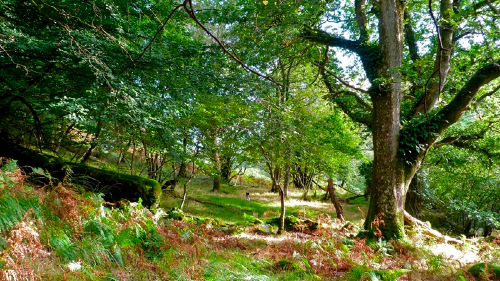
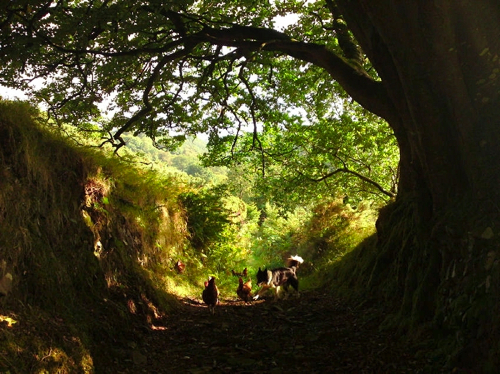


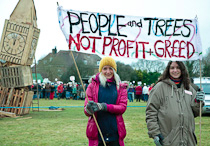


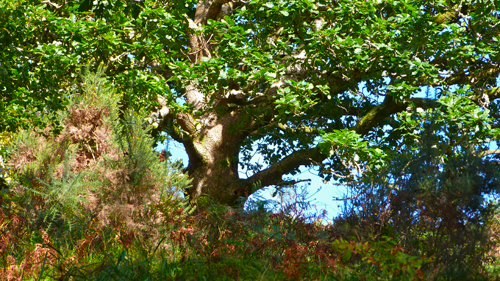

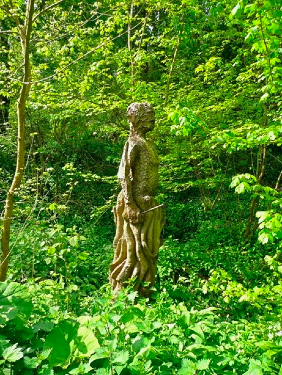
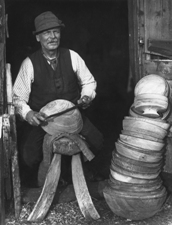



As representative of the One Voice New Forest campaign group (Est. 2008) I came to the FC/Defra table with an open mind and the hope of seeing a positive future for the Public Forest Estate.
I put aside any doubts or misgivings I may have had that the government would try to bring in via the back door the same scenario that faced us in January 2011. The scenario we all faced, and defeated, with a passion that this coalition government had never before seen.
We (OV) were encouraged by the recommendations made in the Independent Forestry Panel’s Report. It looked like a sound, common sense approach to a new PFE. Of course, as everything else in this life, funding is critical.
Now, reading the latest paper “Towards a new Public Forest Estate management body”, my initial doubts and misgivings have returned, together with a vague sense of betrayal by those who I thought were genuinely seeking our views to better inform the process. I have twice offered to help FC with their “community initiatives” but had no further conversations with them, although both times I was led to believe they were very happy to have OV on board.
Despite several official and direct requests for the Minister to ensure the PFE is held in perpetuity we have been told this is not possible. Most members of the public will assume that the PFE was always there in perpetuity, even before the government’s u-turn. I still believe this can be done but the Minister/Defra have no appetite to do so; although page 19 of the “Government Forestry and Woodlands Policy Statement, January 2013” refers to the Law Commission looking into conservation covenants: “They could be used to ensure that woodland cover and benefits valued by the community, such as access or biodiversity, continue to be protected in perpetuity”.
A question arises from this: Would holding the PFE in perpetuity be a ‘deal-breaker’ for those NGO’s who have an interest in managing some or part of the organisation? (See page 4 of “Towards a new Public Forest Estate” “the ability to delegate its functions and to establish subsidiaries or other bodies, including charities, to undertake specific functions in line with the body’s broad purposes”).
Sadly, my view currently is that we have been paid ‘lip-service’ throughout this process and I should have trusted my instincts from the outset.
Well done “Save our Woods” for keeping up the pressure. I am also very dissapointed by the government response – you may be interested in my take on it in my blog at – http://tonywhitbread.blogspot.co.uk/2013/08/a-new-body-to-look-after-nations-forests.html